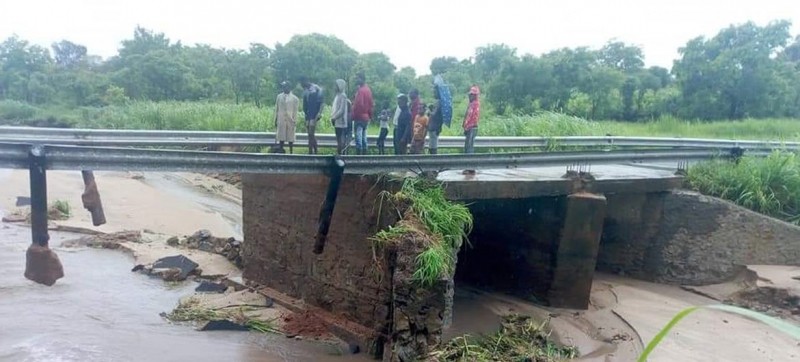People stand on a damaged bridge in the aftermath of Tropical Storm Ana making landfall in Mozambique. UN teams are on the ground in Mozambique assisting thousands of people affected by Tropical Storm Ana, which made landfall in central and northern regions of the country earlier this week. More than 45,000 people, including 23,000 women and children, are likely to need humanitarian aid, UN children’s agency, UNICEF, said on Thursday.
UNICEF is deploying staff and preparing medical and nutrition supplies, water, sanitation and hygiene kits, as well as setting up temporary learning spaces to support children and their families. The agency estimates it will need $3.5 million to respond to the immediate needs.
‘Blunt reminder’ of climate reality
Maria Luisa Fornara, UNICEF Representative in Mozambique, said they are working alongside the government and partners to ensure children and their families receive life-saving assistance.
“This latest storm to hit Mozambique is a blunt reminder that the climate crisis is very much a reality and children are most impacted by climate-related severe weather events,” she said.
Tropical Storm Ana has passed over several countries in eastern and southern Africa, affecting Mozambique but also Madagascar, Malawi and Zimbabwe. Strong winds and heavy rains have caused floods, widespread destruction and fatalities, according to media reports.
Homes destroyed
In Mozambique, the storm hit the provinces of Nampula, Zambezia, Tete, Niassa, Sofala and Manica on Monday. More than 10,000 homes were destroyed, along with bridges, powerlines, schools, health facilities, water systems and other public infrastructure.
Local authorities report 12 health facilities and 137 schools have been damaged or destroyed, UNICEF said, leaving more than 27,300 students without a place to learn just as a new school year is set to begin next week. Numbers are expected to increase as assessments continue.
UNICEF emergency teams will soon begin distributing essential supplies such as buckets, soap and water purification tablets, and ready-to-use therapeutic food for malnourished children. They will also set up temporary learning spaces for children whose schools were damaged or destroyed.
Mozambique highly vulnerable
Mozambique is currently in its rainy season, and the UN fears the situation could deteriorate quickly if another tropical depression or cyclone brings additional rains.
Myrtha Kaulard, UN Resident Coordinator in Mozambique – the top UN humanitarian official in the country – said the storm has highlighted the need for investment to mitigate against climate change.
“This is the first climatic event of this rainy and cyclonic season, but the vulnerabilities are extremely, extremely high because we have this yearly cycle of extremely heavy destructive rains and cyclones. People simply do not have time to recover,” she told UN News.
Mozambique ranks 9 out of 191 countries globally due to its high vulnerability to hazards, exposure to risks, and lack of coping capacity, UNICEF said, citing the disaster risk assessment tool, INFORM.
Invest in climate mitigation
From 2016 to 2021, the country has faced two severe droughts and eight tropical storms, including two major cyclones, Idai and Kenneth, that hit the country in 2019 within a six week-period and affected more than two million people.
Ms. Kaulard said the UN is in “very close contact” with national authorities and has teams in all the affected provinces that are providing humanitarian assistance.
“The authorities are really extremely well organized and present and alerting populations and assessing needs, providing immediate assistance,” she added. “But this country, Mozambique, is really exposed so, so much to climate havocs that we absolutely need to do much, much, more for disaster risk reduction.”




Comments are closed.